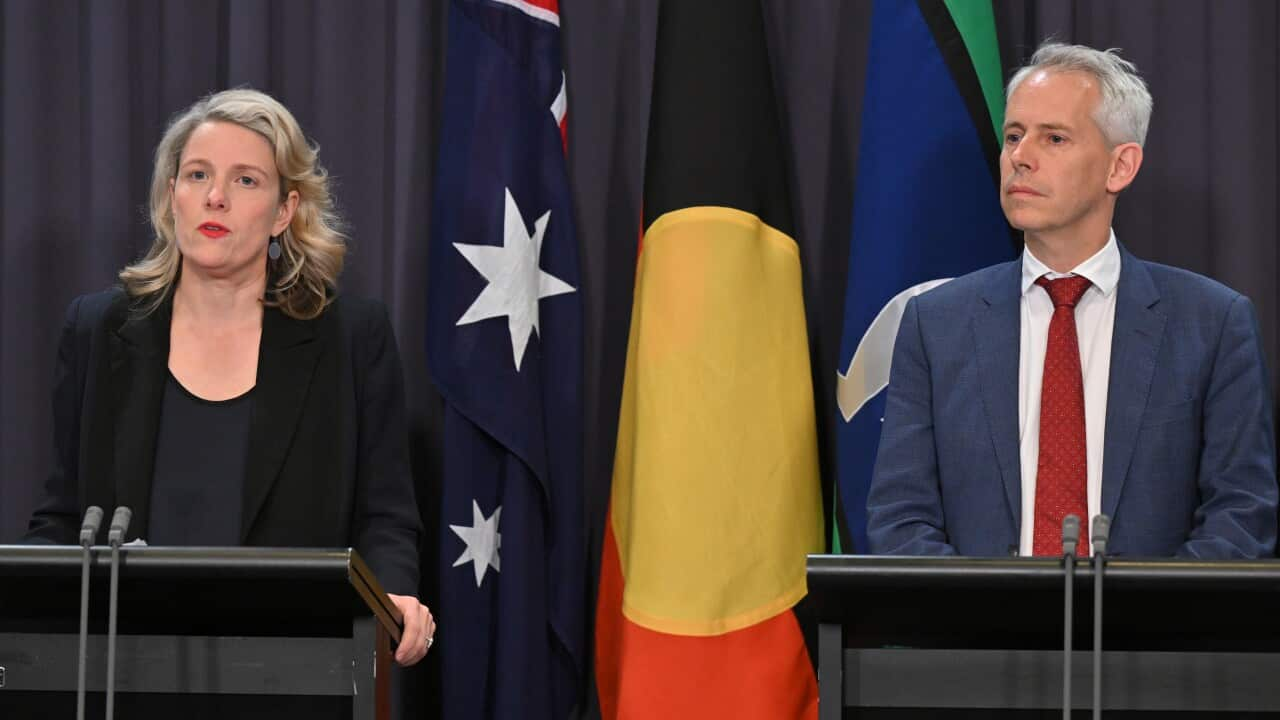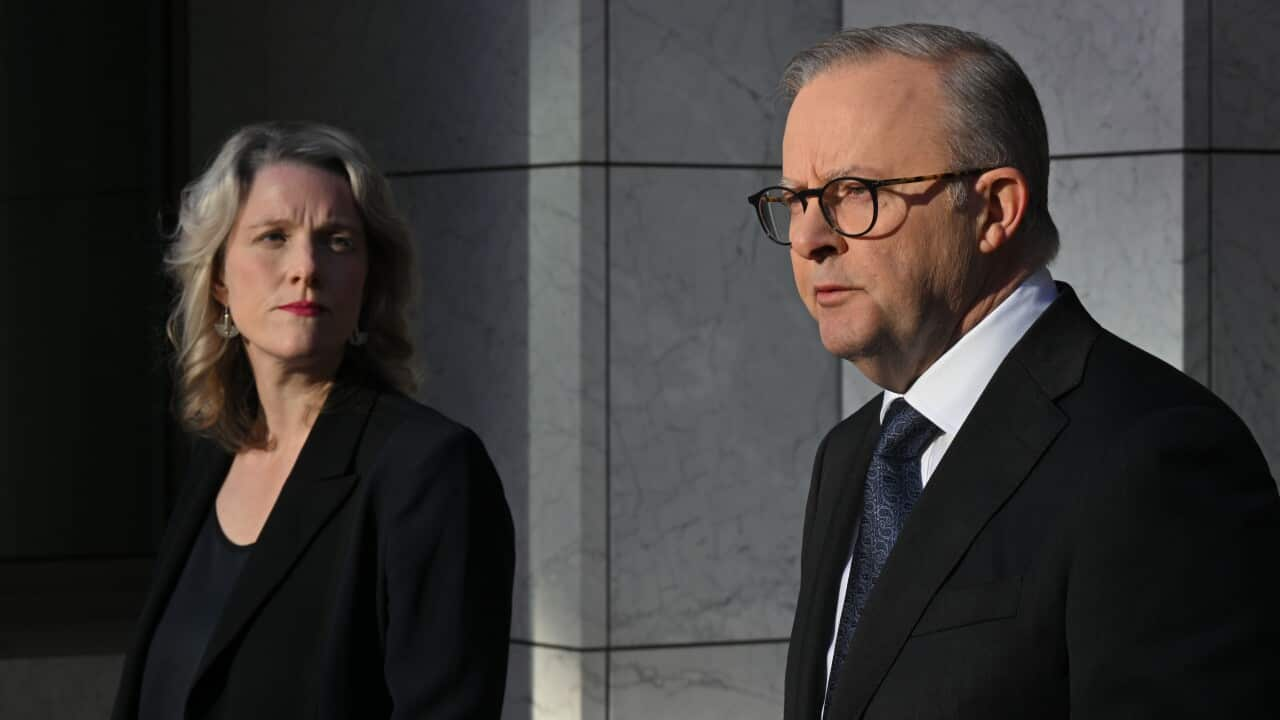KEY POINTS:
- Labor has appointed a community protection board to advise on released detainees.
- Peter Dutton says the move is more chaos from Labor since the High Court's ruling.
- The High Court found indefinite detention was illegal last month.
Immigration minister Andrew Giles will take advice from a new board about the management of more than 150 people released from indefinite detention following a High Court ruling.
The that indefinite detention, a fixture of Australia's immigration system for two decades, was illegal, a finding which led to detainees being released into the community.
Labor rushed through a series of measures, including curfews and mandatory ankle bracelet monitoring.
Home Affairs Minister Clare O'Neil revealed on Tuesday a "community protection board" had been established to advise the government on which restrictions should be placed on a detainee, up to returning them behind bars.
All detainees released after a landmark High Court decision will remain free at least until Christmas, Opposition leader Peter Dutton has claimed.

Andrew Giles and Clare O’Neil say the board will offer 'evidence based' advice. Source: AAP / Mick Tsikas
Speaking to reporters soon after, Dutton said the government did not have the "background work done" and Tuesday's announcement was a continuation of its "chaotic approach" since the ruling.
He argued the move would keep potentially dangerous criminals on the streets, potentially into the new year.
"If the government hasn't yet put together this law enforcement board, and they don't yet have cases ready to go to court, they don't get to get there before Christmas," he said.
"The government had a chance to put these people back into detention. And we don't believe that even one case is going to come before the courts in the run-up to Christmas."
The board - comprised of officials from the Australian Border Force, Home Affairs, and former law enforcement officials - met for the first time on Monday, and will continue to advise Immigration Minister Andrew Giles on the roughly 160 released detainees.
"The government’s strong laws to keep Australians safe will enable the board to provide individualised assessments of appropriate measures ... The government and relevant agencies continue to work constructively through these complex challenges and meet the legal obligations resulting from the High Court’s decision," O'Neil and Giles said in a joint statement.
Six of the released detainees have since been arrested, accused of various crimes like theft and breaching their strict curfew.
The High Court was asked to consider the future of a Rohingya man, known as NZYQ, who could not be deported and had served his sentence for sex offences.
In a unanimous decision, it ruled that indefinite detention was illegal when there was "no real prospect of removal from Australia becoming practicable in the reasonably foreseeable future".
Most of the released cohort have not been convicted of a crime, but it does include a number of sex offenders and at least two men convicted of murder.










